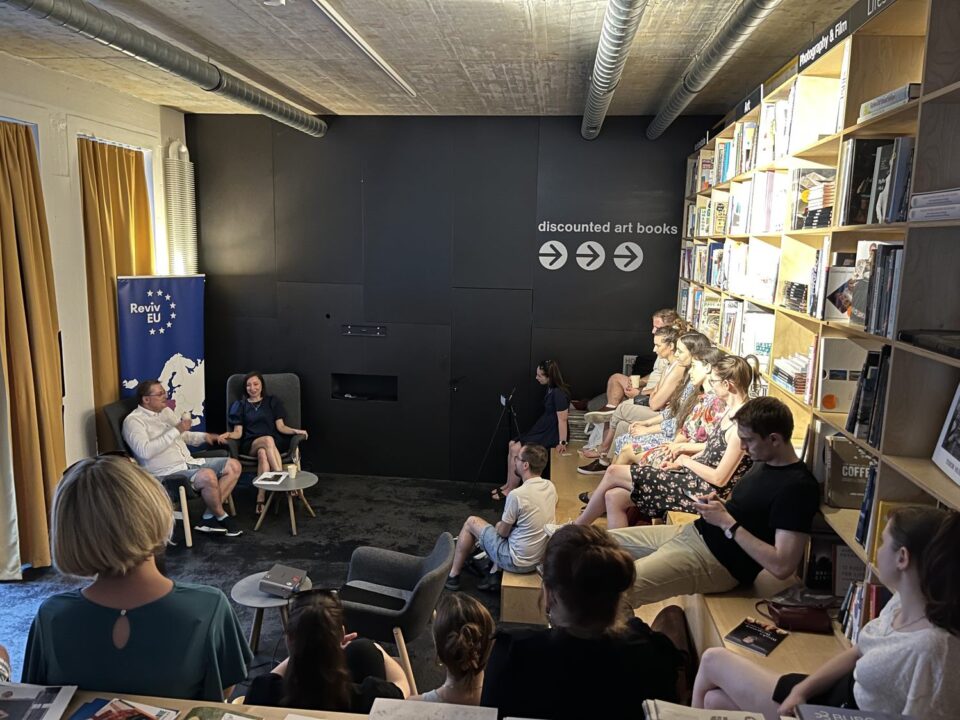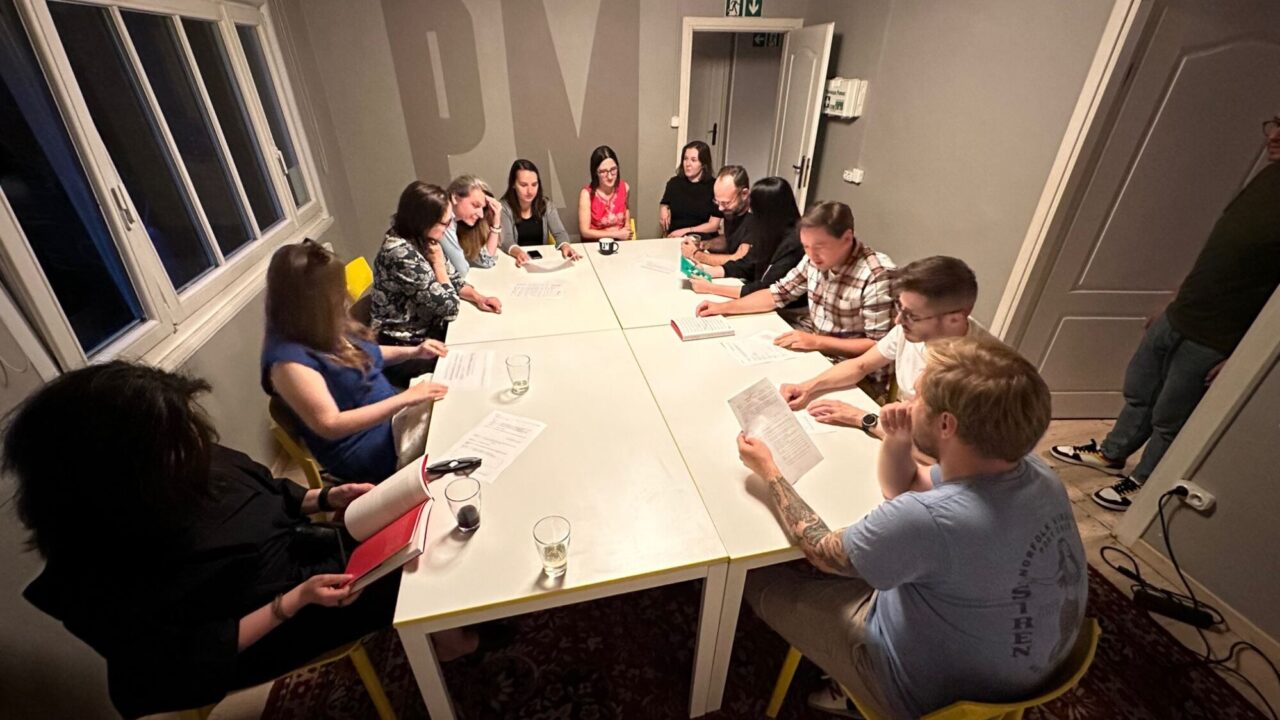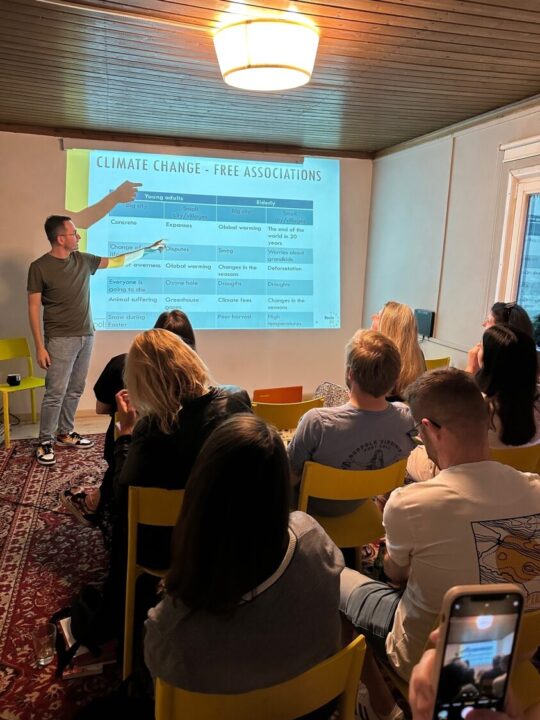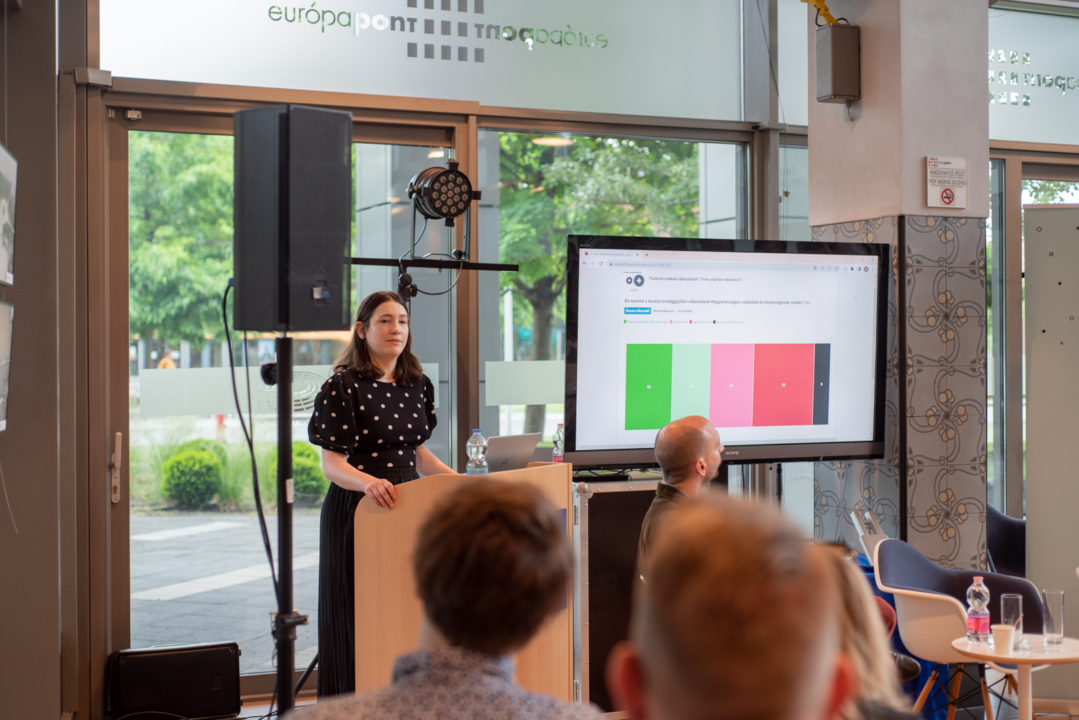Public presentations of the findings of Focus Groups
Part of the RevivEU research is formed by the series of focus groups, carried out in the four project countries during the second half of April and May 2023. The qualitative findings of the focus groups supplement the quantitative results gained during the two waves of citizens´ consultations – you can read more about the format and the results in the article on the focus groups, in the Research section.
The results of the Focus Groups were then presented during a series of public presentations in the 4 countries.
Slovakia
The public presentation of the results of the focus groups in Slovakia took place on June 20, 2023 in the premises of ART BOOKS COFFEE in Bratislava. Michal Vašečka and Viera Žúborová were the main hosts, who presented the main conclusions of the focus group discussions in Slovakia to the participants and then discussed and analyzed them together.
The focus group discussions in Slovakia revealed a clear division between the opinions of young and educated participants and the elderly with lower social status or from rural areas. Those favouring a deeper understanding of the European Union (EU) tended to support deeper integration, seeing the EU as a stabilizing force in an uncertain world. Conversely, critics viewed the EU as elitist, favouring Western countries and disregarding other cultures. Topics such as migration and the rule of law were highly polarizing, while climate change garnered more consensus, with participants supporting measures to mitigate its effects. The discussions also highlighted the generation gap, with younger participants being more informed and supportive of EU initiatives. The challenge of decoding and reacting to fake articles was apparent, and patterns of polarization and scepticism towards external influence were observed. Overall, the findings reflected differences in generational perspectives, levels of education, and exposure to information.


Poland
The public presentation of the results of the focus groups in Poland took place on June 30 in the premises of aństwomiasto social and cultural hub. Miłosz Hodun was the main host of the event. He presented the results of focus groups and facilitated a round table discussion.
The most surprising outcome of the focus groups, according to events participants, was the high support of Polish people for the Next Generation EU. Participants of the event, just like participants of focus groups, had serious doubts about how Polish government will use the funds, and stressed that they worry it will be used for activities against the fundamental rules of the EU.
During the focus groups we discovered that aiming for climate neutrality and energy independence is important to both age groups. However, among older people from small towns, individual voices were questioning the role of humans in climate change. Round table participants brainstormed about what can be done to reach older Poles with science-based data on climate change and sustainability.
Participants stressed that it is very important and useful that the focus groups on older member of the society. They agreed that knowledge of their views and knowledge is crucial from the democratic perspective as it is the most active group in every elections.


Hungary
On 27 of June we presented the results of our focus group research to the general public. We organized 4 FGs with “grey zone” participants from 4 different party affiliations, where we tested pro-EU messages around the topic of climate, migration, NGEU and rule of law. Our audience was rather curious and surprised to see that rule of law is not among the top 3 priority of Hungarian people. This generated a vivid discussion among our 18 participants on how that could be changed and what could be done differently so that the general public becomes more sensitive to rule of law issues.


Czechia
The results of the Focus Groups conducted in Czechia were presented on 12th of June to a smaller group consisting of sociology and EU experts and private citizens. In line with the Focus Groups themselves, most attention was dedicated to the questions of climate change and migration, which are the project topics with the most traction and interest in the Czech Republic. Similarly to the presentation of the second phase of the citizens´ consultations, which took place earlier in the day, the participants were also surprised by how many people consider small corruption to be acceptable.
A part of the discussion was dedicated to the methodology and construction of the qualitative seminars, as well as the fact that this type of research and engagement with citizens is invaluable because of the insights it can bring into what topics and narratives have a sway with the general public and which tend to be more niche and “Prague-bubble like”.

